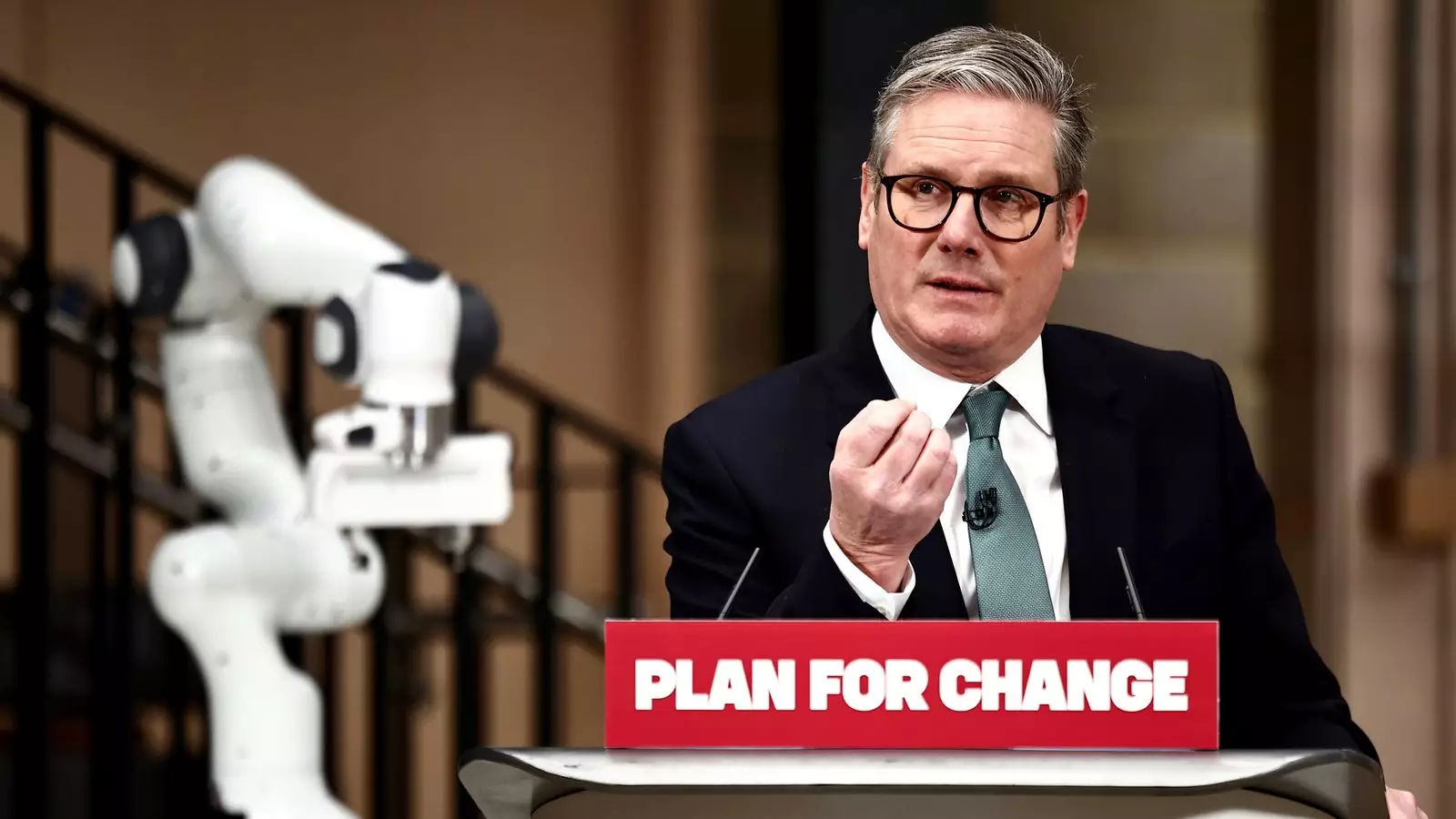The political landscape of the United Kingdom is currently overshadowed by notable economic turbulence, prompting leaders to reconsider their strategies regarding fiscal policy. Sir Keir Starmer, the leader of the Labour Party, has been vocal about the need for a focused, proactive approach to steer the economy towards growth while practical spending cuts loom on the horizon. Understanding the implications of these fiscal strategies amid rising interest rates and declining currency values is crucial for assessing not only political ramifications but also the broader economic future of the UK.
Starmer’s assertion that the Treasury must be “ruthless” in implementing government spending cuts reflects a disturbing recognition of the prevailing market conditions. With long-term and benchmark borrowing costs skyrocketing—reaching levels last seen during the late 1990s and prior to the recent financial crisis—this situation has placed the UK’s economic credibility under significant strain. The 30-year gilt yield has now hit an alarming 5.47%, and the 10-year borrowing cost has hovered near 4.86%, signaling a pressing need for fiscal re-evaluation.
While Starmer emphasizes economic growth as the “number one mission,” one must consider the delicate balance that must be struck between maintaining public services and ensuring fiscal responsibility. The expected review that could mandate a 5% reduction from departmental budgets further underscores the urgency amongst policymakers to streamline expenditures amidst an uncertain economic backdrop.
A critical aspect driving economic conversations is the weakening of the British Pound, which recently dropped to its lowest point against the US Dollar since October 2023. Changes in currency value can often serve as a bellwether for investor confidence and overall economic stability. The Pound’s depreciation not only reflects internal economic concerns but also exacerbates the situation by increasing costs for imports, thus further complicating the fiscal landscape for the government.
As political leaders like Starmer attempt to navigate this turmoil, questions abound regarding their ability to implement effective reforms that foster economic growth while simultaneously negotiating the realities of a declining currency. With potential mortgage rate hikes on the horizon, the repercussions could extend to ordinary citizens, intensifying the need for strategic fiscal policies that prioritize both growth and responsible spending.
Amidst these discussions, Starmer’s reticence to confirm the future of Shadow Chancellor Rachel Reeves speaks volumes about the unpredictable nature of the current political climate. While he praised her performance, his refusal to definitively state her continuity in the role raises questions about the internal Party dynamics and the overall confidence in their economic strategies. Such uncertainty may undermine public and investor trust, further hindering the potential for economic recovery.
The Conservative opposition has seized this moment, pointing to Starmer’s ambiguity regarding Reeves’ future role as indicative of broader failures within the Labour leadership. This political friction not only presents challenges for Starmer but also highlights how leadership visibility during crisis moments can significantly impact national morale and investor sentiment.
As Sir Keir Starmer confronts the daunting task of reviving economic stability in the UK, the implications of austerity measures and the need for economic growth will be at the forefront of political discourse. The combination of rising interest rates, weakened currency, and uncertain political alliances presents a conundrum that requires astute navigation.
For the government and its leaders, the pursuit of a balanced approach that acknowledges necessary fiscal discipline while remaining committed to long-term economic revitalization will be critical. How effectively Starmer and his administration can achieve this balance, while maintaining confidence both internally and amongst the public, will ultimately determine their success in weathering this financial storm and positioning the UK for a prosperous future. The stakes are high, and the road ahead will undoubtedly be filled with challenges requiring both courage and strategic foresight.


Leave a Reply